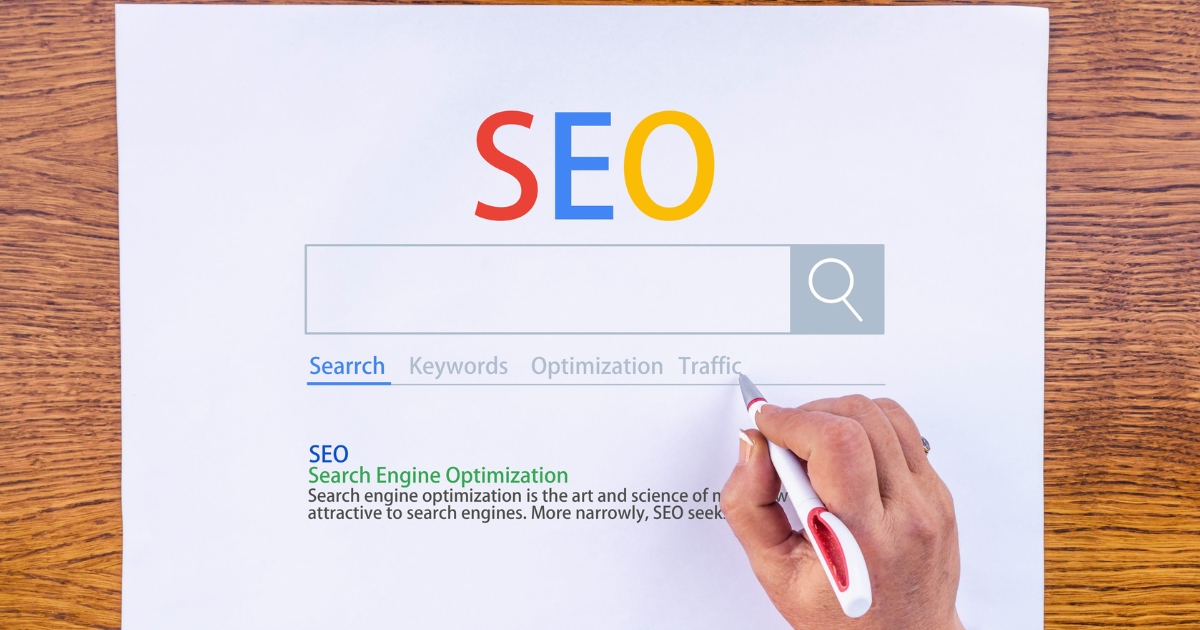Search Engine Optimisation (SEO) plays a crucial role in driving organic traffic to websites, and WordPress, being one of the most popular content management systems, provides a solid foundation for optimising websites for search engines. SEO for WordPress websites involves a combination of on-page and off-page optimisation techniques aimed at improving search engine rankings and increasing visibility in search results. With its user-friendly interface and a wide range of plugins and tools, WordPress offers numerous opportunities for website owners to enhance their SEO efforts. From keyword research and optimisation to technical SEO and user experience, understanding the basics of SEO for WordPress websites is essential for anyone looking to improve their online presence and attract targeted traffic from search engines.

Understanding Search Engine Optimisation (SEO)
Search Engine Optimisation (SEO) is the practice of optimising a website to improve its visibility and ranking in search engine results pages (SERPs). It involves implementing various techniques and strategies to ensure that search engines can easily crawl, index, and understand the content on a website. The goal of SEO is to increase organic, non-paid traffic to a website by appearing higher in search results for relevant queries.
SEO encompasses both on-page and off-page optimisation. On-page SEO focuses on optimising individual web pages with keyword research, content optimisation, meta tags, headings, and URL structure. Off-page SEO involves building high-quality backlinks, social media signals, and other external factors that influence search engine rankings. Understanding SEO is crucial for businesses and website owners to enhance their online visibility, attract targeted traffic, and ultimately achieve their digital marketing goals.
The importance of SEO for WordPress websites
SEO is of paramount importance for WordPress websites due to its potential to significantly impact online visibility, organic traffic, and overall business success. WordPress, as a popular content management system, provides a solid foundation for implementing effective SEO strategies. By optimising a WordPress website for search engines, businesses and website owners can improve their chances of ranking higher in search engine results pages (SERPs) for relevant keywords and phrases. This increased visibility translates into more targeted organic traffic, which can lead to higher conversions, customer engagement, and revenue generation.
SEO helps in creating a user-friendly website structure, improving site navigation, and enhancing the overall user experience. With the wide range of SEO plugins and tools available for WordPress, optimising title tags, meta descriptions, URLs, and content becomes easier, even for those without extensive technical knowledge. By investing time and effort into SEO for WordPress websites, businesses can establish a strong online presence, outrank competitors, and attract a steady stream of organic traffic from search engines.

Keyword research and analysis
Keyword research and analysis are fundamental components of any successful SEO strategy. It involves identifying the specific words and phrases that users enter into search engines when looking for information, products, or services related to a particular website. By conducting thorough keyword research, website owners can gain valuable insights into the search behaviour of their target audience and discover relevant keywords with high search volume and low competition. This research helps in optimising website content, meta tags, headings, and URLs to align with the identified keywords, increasing the chances of ranking higher in search engine results.
Keyword analysis also allows website owners to understand the intent behind specific search queries, enabling them to create tailored content that meets user needs and addresses their pain points. Regularly analysing keyword performance and making necessary adjustments ensures that a website remains optimised and competitive in the ever-evolving landscape of search engine rankings. Ultimately, keyword research and analysis provide the foundation for effective SEO, helping websites attract targeted traffic, improve visibility, and achieve their online objectives.
On-page SEO techniques for WordPress
On-page SEO techniques are vital for optimising individual web pages on a WordPress website to improve their visibility and search engine rankings. WordPress offers a range of tools and features that make it easier to implement these techniques effectively. One of the key aspects of on-page SEO is keyword optimisation. By conducting thorough keyword research, website owners can strategically incorporate relevant keywords into their page titles, headings, URL structure, and content. Creating unique and compelling meta descriptions for each page helps search engines and users understand the page’s content at a glance.
In addition, optimising image alt tags and ensuring proper internal linking within the website can enhance user experience and improve search engine crawling. WordPress also allows the use of SEO plugins, such as Yoast SEO, Rank Math, SEOPress, and All in One SEO Pack, which provide valuable guidance and analysis on on-page optimisation, including readability, keyword density, and overall SEO score. By leveraging these on-page SEO techniques in WordPress, website owners can increase the visibility and searchability of their web pages, ultimately attracting more organic traffic and improving their website’s performance in search engine results.

Optimising content for SEO
Optimising content for SEO is crucial for ensuring that website pages rank well in search engine results and attract organic traffic. In the realm of content optimisation, relevant and high-quality content reigns supreme. It’s essential to conduct thorough keyword research to identify the target keywords and phrases that align with the page’s purpose. These keywords should be strategically incorporated into the content, including headings, subheadings, and body text, while ensuring a natural and seamless flow. Keyword placement, along with proper formatting, including the use of bullet points, lists, and bold/italicised text, helps enhance readability and user experience.
Optimising meta tags, including title tags and meta descriptions, is crucial to provide search engines with a concise summary of the page’s content. Engaging and shareable content also has the potential to attract natural backlinks from authoritative sources, further boosting the page’s SEO. Regularly updating and refreshing content keeps it relevant and signals to search engines that the website is active and provides valuable information.
Technical SEO for WordPress websites
Technical SEO is a critical aspect of optimising WordPress websites to ensure they are search engine-friendly and can be effectively crawled and indexed. WordPress, with its robust infrastructure, provides several features and plugins that facilitate technical SEO implementation. Key areas of focus include website speed and performance optimisation, ensuring fast loading times and efficient code structure. This can be achieved by using caching plugins, optimising image sizes, and implementing code minification techniques. Another essential element is website structure and navigation. Utilising clean and logical URL structures, creating XML sitemaps, and implementing breadcrumb navigation aids search engines in understanding the site’s hierarchy and content relationships.
Properly configuring robots.txt and .htaccess files helps control search engine access and indexation. WordPress offers plugins that enable the implementation of schema markup, which enhances the visibility and appearance of search results. Regular website audits, utilising tools like Google Search Console, can assist to identify and resolve technical issues such as broken links, duplicate content, or crawl errors.

Measuring and improving site speed for SEO
Measuring and improving site speed is crucial for effective SEO as it directly impacts user experience and search engine rankings. Slow-loading websites can lead to higher bounce rates and lower user engagement, negatively affecting organic traffic and conversions. To measure site speed, various tools like Google PageSpeed Insights, GTmetrix, or Pingdom can be used to analyse and assess factors that contribute to slower load times. These tools provide insights into areas that need improvement, such as optimising images, reducing server response time, leveraging browser caching, and minifying CSS and JavaScript files.
Implementing content delivery networks (CDNs) can also help distribute website content across multiple servers globally, reducing latency and improving load times. Compressing files, optimising code, and choosing a reliable web hosting provider are effective strategies for enhancing site speed. Regular monitoring of site speed, along with continuous optimisation efforts, ensures that a website loads quickly and efficiently, leading to better user experiences, increased engagement, and improved search engine rankings.
Creating SEO-friendly URLs in WordPress
Creating SEO-friendly URLs in WordPress is essential for improving search engine visibility and user experience. A well-structured and descriptive URL not only helps search engines understand the content of the page but also provides users with a clear idea of what to expect when clicking on the link. WordPress allows users to customise the URL structure by choosing the Permalink settings. It is recommended to use a URL structure that includes relevant keywords related to the page’s content, making it easier for search engines to index and rank the page for relevant queries.
It is advisable to avoid using dynamic URLs with random characters or numbers and instead use static, readable URLs. Including hyphens to separate words within the URL aids readability and enhances search engine understanding. Keeping URLs concise and free of unnecessary parameters or stop words is beneficial. Regularly reviewing and optimising URLs for new or updated content ensures that the website maintains an SEO-friendly URL structure, ultimately contributing to improved search engine rankings and a better user experience.

Supercharge your WordPress website’s SEO today!
Ready to boost your website’s search engine rankings and drive organic traffic? Take advantage of our comprehensive SEO services for WordPress websites. Our team of experts specialises in optimising WordPress sites for search engines, implementing effective strategies for keyword research, on-page SEO, technical SEO, and content optimisation.
With our proven track record and in-depth knowledge of WordPress, we’ll help you achieve higher visibility, attract targeted traffic, and ultimately grow your online presence. Don’t miss out on the opportunity to elevate your website’s SEO performance. Contact us today to get started on optimising your WordPress website for search engines and unlocking its full potential.

